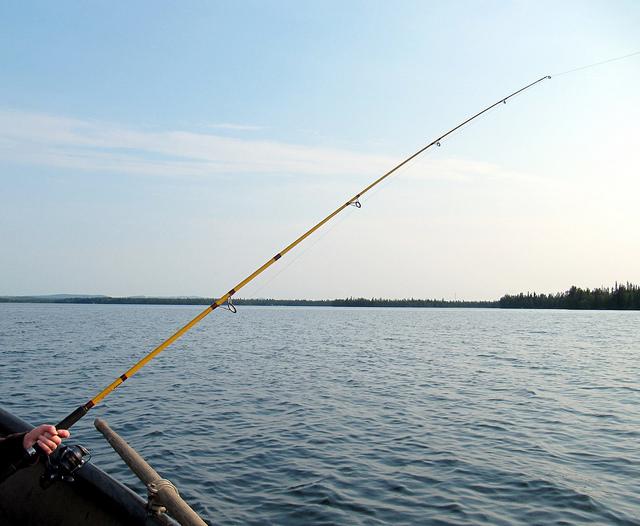Fisherman stocking their bait boxes will want to leave out lead tackles after they were recently banned on some Northern Wisconsin lakes.
The Department of Natural Resources decided to ban the use of lead tackles in three of northern Wisconsin’s lakes in an effort to test the environmental impacts of lead fishing supplies.
Beginning April 1, Lakes Escanaba, Pallette and Nebish in Vilas County will be areas where lead tackles that weigh less than one ounce and are less than one inch long are banned.
The three lakes are commonly used by DNR for research purposes. The results from the experiments will likely determine whether the DNR decides to extend the ban statewide.
According to Greg Sass, a fisheries research scientist for the DNR, tackles used by fisherman across the country almost always contain lead.
“Lead tackle by far is the most commonly used weight in the fishing industry for its density and its cost effectiveness,” Sass said. “There are only a few non-lead tackles available.”
To ease the transition for the approximately 2,500 fisherman affected, the DNR is offering non-lead tackles for free in the areas surrounding three affected lakes.
After using the non-lead tackles, fisherman will be asked to fill out a survey on their experience. Sass said the results from the surveys will then be evaluated on a quarterly basis and help the DNR make an informed decision about the fate of lead tackles.
The program was been launched in an effort to reduce the number of waterfowl and birds poisoned by consuming lead, Sass said.
George Meyer, executive director of the Wisconsin Wildlife Federation, described the effect of lead poisoning on loons from firsthand experience and experiments at the U.S. Fish and Wildlife Laboratory in La Crosse, where they give the loons small amounts of lead.
“The lead first affects their behavior, then they lose their coordination and eventually die because they lose the ability to function,” Meyer said. “This is not a widespread problem, but there is knowledge that if lead is ingested by loons, and other birds that feed in Wisconsin lakes, there are tremendous side effects.”
Although there is not a set timeline for the ban, Meyer said similar pilot programs typically run three to five years.
Sass said the DNR is just starting to learn more about the issue, and the program looks to inform an eventual final decision on the use of lead tackles.
[Photo by Flickr user RukaKuusamo.com]


